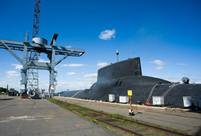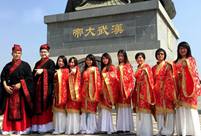

Australian Prime Minister Tony Abbott has requested his cabinet to boycott a popular talk show on the national broadcaster Australian Broadcasting Corp (ABC), after a former terror suspect was allowed to appear on live television to question the government's plans to strip dual nationals of citizenship if they had supported terrorism.
The event has triggered debates in Australia about national security and freedom of speech. ABC management said it was an "error of judgment" to let the terror suspect ask questions in a live, uncontrolled environment. Meanwhile, some senior ministers said Abbott's decision smacks of a pointless and petulant "captain's call," and television veteran Ray Martin decried the boycott as "silly."
In Australia, which is considered as part of the Western sphere, freedom of speech as a core Western value has been endowed with great political significance.
Since the September 11 attacks, governments concerned have led unprecedented campaigns against terrorism, which include expansive surveillance measures and enforcement.
Under such circumstances, freedom of speech and national security have become a unique pair that reveals the ongoing debate between civil libertarians and defenders of government power. Yet the debate should focus on how to balance national security and freedom of speech.
The shocking attack on French satirical news weekly Charlie Hebdo early this year has sparked debates on the boundaries of freedom of speech. The magazine's satirical depiction of the Prophet Muhammad led to the killing of 12 people and gave rise to widespread violence in the country.
And in a liberal democracy like the US, censorship is systematically applied to citizens in the name of national security. Companies like Google and Twitter often receive national security requests for data. These companies wanted the government to reveal how often it submits national security requests for user data, while the government was reluctant to do so.
One may argue that suppression of freedom of speech may be a national security threat in itself, but it is also worth noting that ensuring national security is a prerequisite to protect freedom of expression.
The definition of freedom of speech has constantly been questioned. How to ensure national security and manage social diversity is now posing a challenge to many governments.
 Evolution of Chinese beauties in a century
Evolution of Chinese beauties in a century Creative graduation caps of ‘vigorous elves’
Creative graduation caps of ‘vigorous elves’ Typhoon class strategic Submarine in photos
Typhoon class strategic Submarine in photos Hong Kong college students feel the charm of Hanfu
Hong Kong college students feel the charm of Hanfu Japan’s crimes committed against "comfort women"
Japan’s crimes committed against "comfort women" Odd news:“carrying a rod and asking to be spanked”
Odd news:“carrying a rod and asking to be spanked” Legendary life of a bee-keeping master in Hainan
Legendary life of a bee-keeping master in Hainan 4-year-old cute 'monk' spends summer holiday in temple
4-year-old cute 'monk' spends summer holiday in temple Hong Kong in lens
Hong Kong in lens Can China play a role in Greek debt crisis?
Can China play a role in Greek debt crisis?  Dogs in uniform: China’s combat canines
Dogs in uniform: China’s combat canines Cut for China
Cut for China Market reacts to govt support
Market reacts to govt support Day|Week